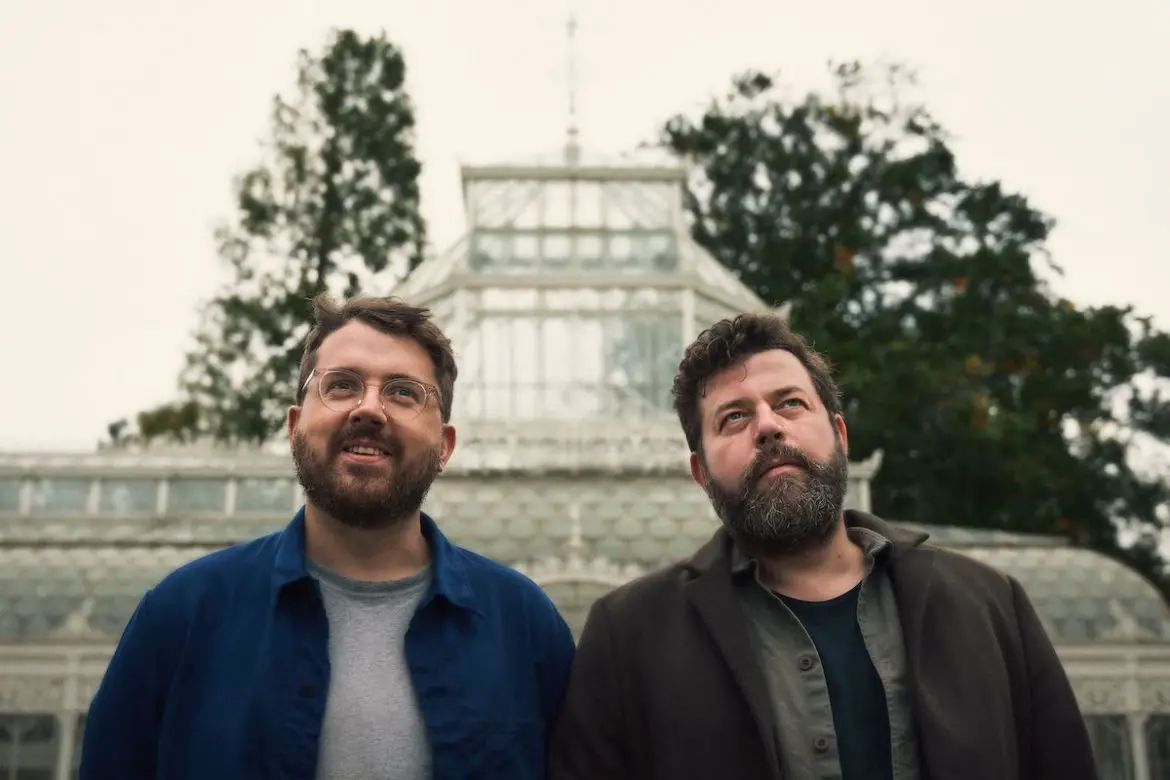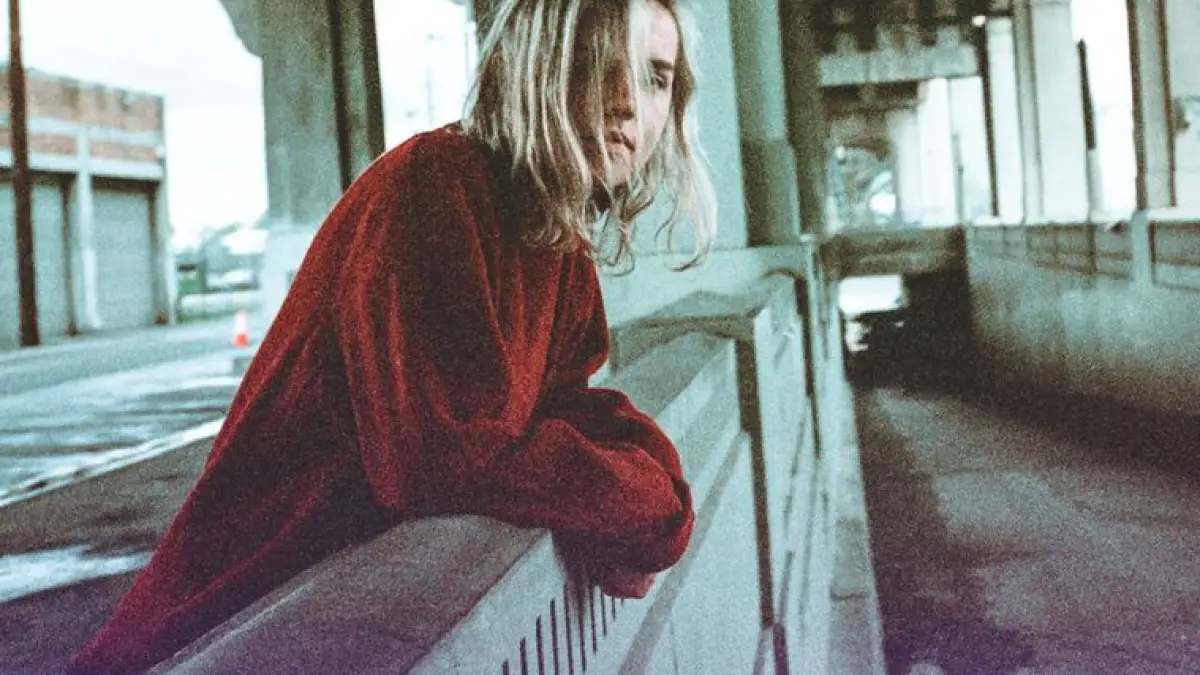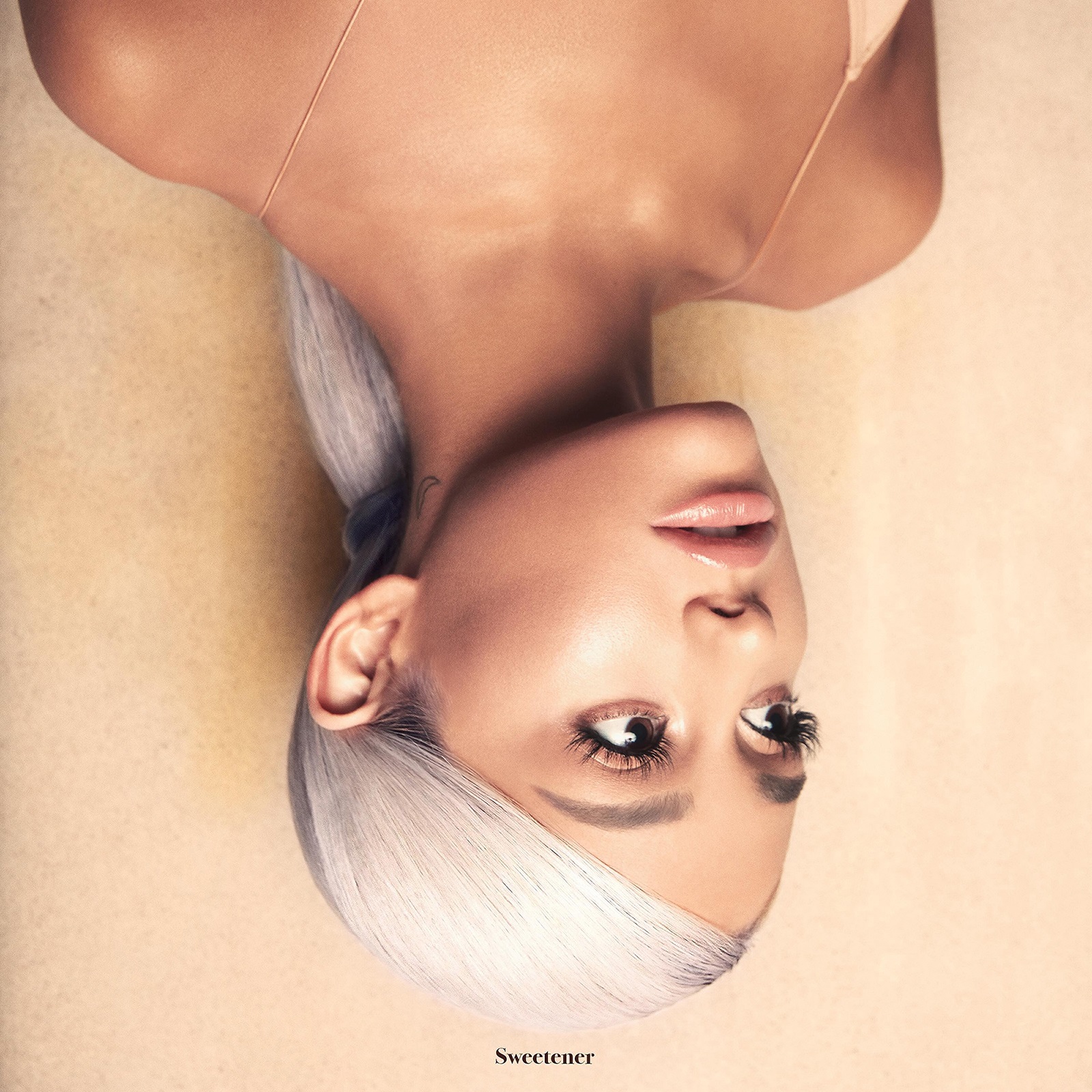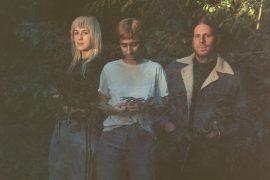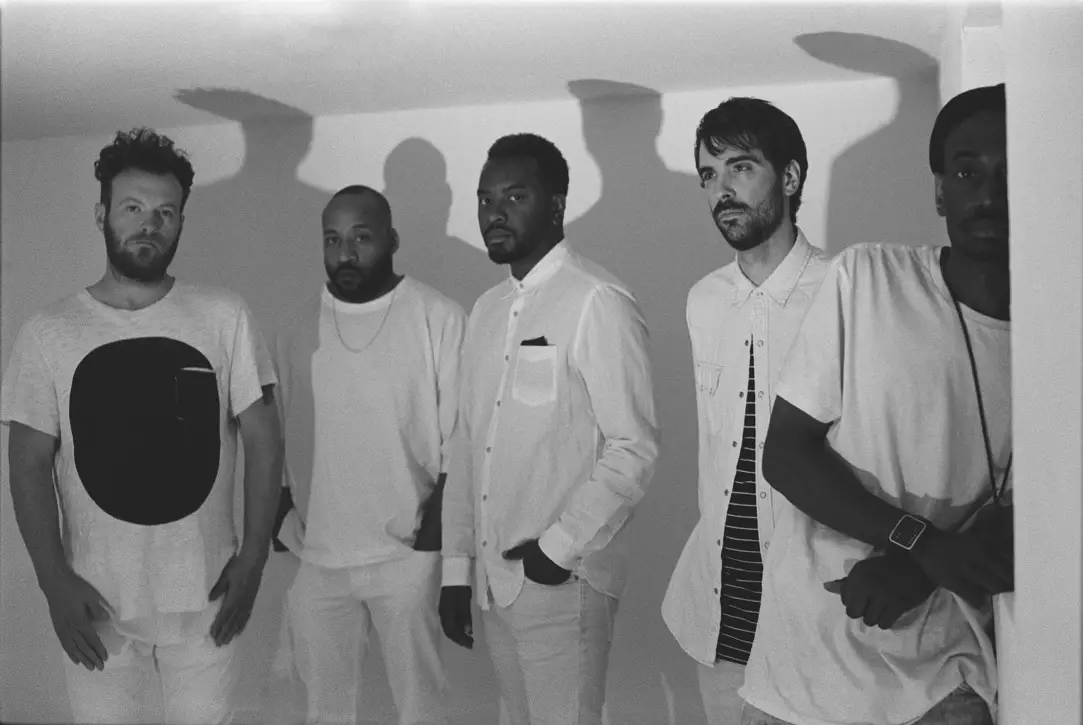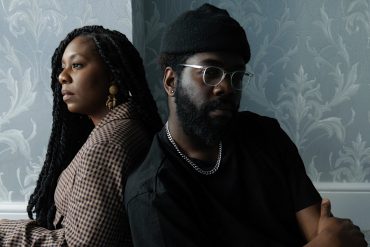Bear’s Den’s Andrew Davie opens up about the band’s bold and brave 4th LP ‘Blue Hours,’ an impassioned exploration of vulnerability and emotional reckoning, inner struggle and raw hope.
Stream: “Spiders” – Bear’s Den
A big theme on the record is mental health, and blue, to me, is a color that’s relevant somehow. ‘Blue Hours’ felt like a name for my own depression.
Bear’s Den’s fourth album is a triumph of the heart, a triumph of the soul, and a triumph of the human spirit.
It’s a record of falling apart and putting your pieces back together again; of coping with loss; of living with depression, and dealing with pain past and present, experienced and inherited. It’s also a record of appreciation, growth, and connection: Of learning to accept ourselves and our imperfections, of reaching out, and of letting others in. After all, we can’t always pull ourselves out when the darkness comes; sometimes we need that helping hand.
Life can often feel like a turbulent landslide, and here Bear’s Den have crafted the perfect soundtrack to processing our hurt, heartache, and disarray. An impassioned exploration of vulnerability and emotional reckoning, Blue Hours is a bold, brave, and achingly intimate exploration of inner struggle and raw hope. Built with love (for ourselves, for others, and for the bridges we can build), it’s an album about getting by when there’s no going over or under our obstacles; when the only way out is through.
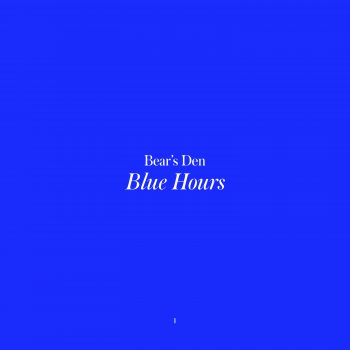
Is it all that you wanted?
Your hair blowin’ in the cold breeze
Secrets within the trees that are not revealed to you
You’re frightened over your nature
Your promises, they escape you
What’s one more burden on the back of this beast?
I can’t take back all the hurt I’ve caused
Everything I love I have somehow lost
It’s four in the morning
And the spiders are crawling in my mind
Replaying pictures of
All that I can’t undo
Love, I’m trying
But I can’t pull myself out when the darknеss comes
Love, I’m trying
But I can’t pull myself out whеn the darkness comes
– “Spiders,” Bear’s Den
We’ve all experienced blue hours in our lives, and while this music isn’t a cure-all, it’s certainly an everlasting reminder that you’re not alone. Released May 13, 2022 via Communion Records, Blue Hours is a stunning and stirring return for London’s Bear’s Den. An internationally celebrated UK duo known for their music’s outstanding level of depth, intimacy, nuance, and vulnerability, Bear’s Den formed in London in 2012 and have been stunning audiences the world over with their special brand of indie folk and rock ever since.
2014’s acclaimed debut album Islands was followed by 2016’s sophomore effort Red Earth and Pouring Rain and 2019’s third record So that you might hear me; the band also released a winter EP, Only Son of the Falling Snow, later that same year, as well as a collaborative album, Fragments, with legendary composer/arranger Paul Frith (The xx, Radiohead), in 2020. In between all of these records there have been innumerable tours and more (Kev Jones is also founder of Communion Records, which he started with Mumford and Sons’ Ben Lovett and producer Ian Grimble).
“Driven by intense, therapeutic songwriting and equally immersive instrumentation and arranging, Bear’s Den’s music is inherently full of life and down-to-earth, deeply human sentiments,” we wrote in a 2020 feature.
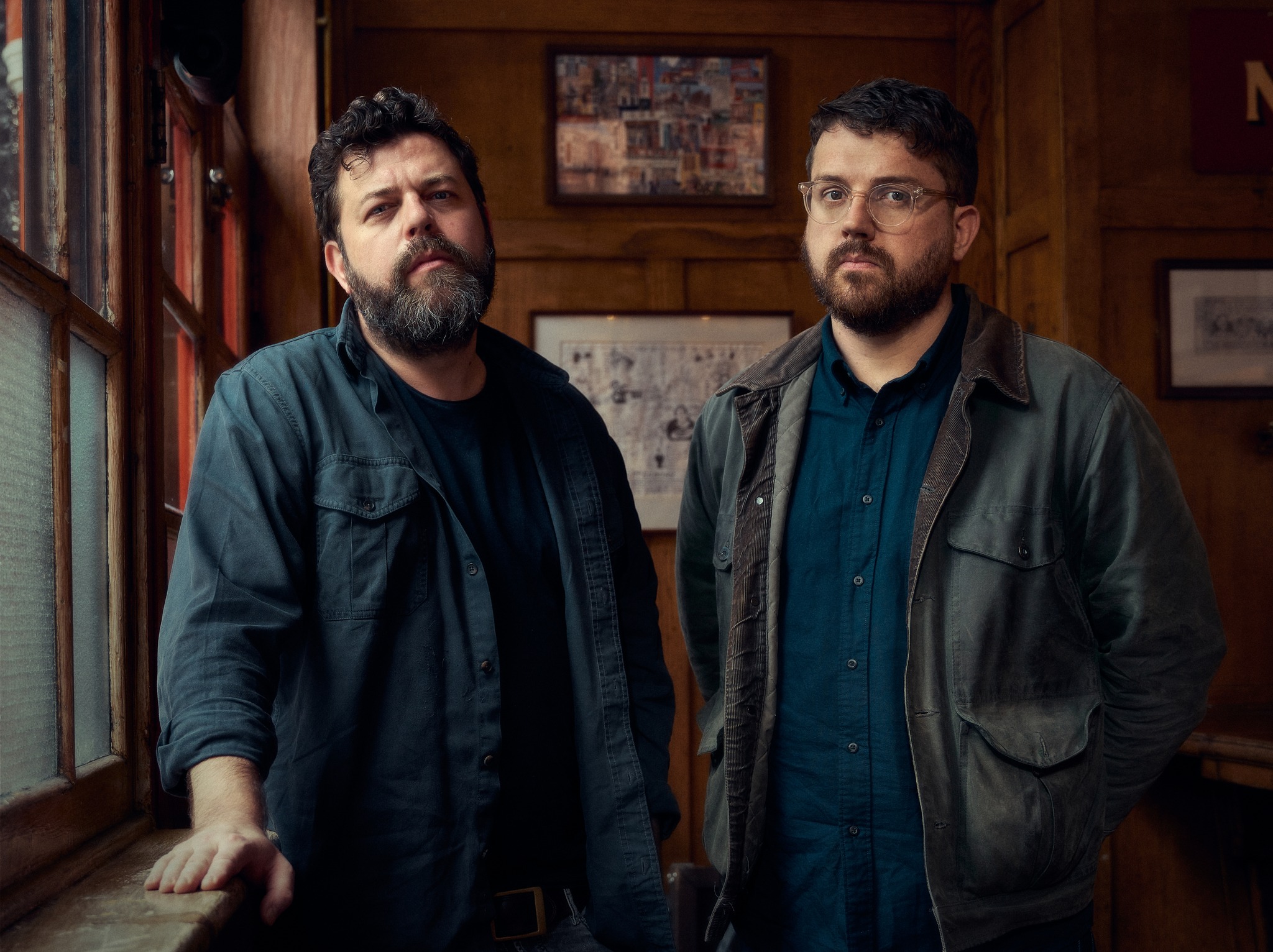
A decade into their career, Bear’s Den are more sure of themselves and their art than ever.
Blue Hours is the band’s most dynamic, confident, and open record yet, finding Andrew Davie and Kev Jones crafting propulsive, sonically and emotionally driven rock songs that hit hard inside and the out. “Holding back all we’ve begun, trying to still the setting sun,” Davie sings on the album’s driving opener, “New Ways. “We watch the bonfire of our vanities and our plans all tearing at the seams… gonna have to find new ways to get by.” The following forty some odd minutes find the band trudging through life’s lows, unpacking those experiences, and processing the emotional impact and the results of said impact.
“When I was writing songs at night and jotting down ideas and stuff and starting to think about a new record, I started thinking of it almost like I was checking into a hotel called the Blue Hours Hotel to write songs,” Andrew Davie tells Atwood Magazine. “It was a name for a creative headspace, I guess. That’s where the album title came from. A bit of a fascination with the color blue came into play, and all that it stood for to me, which perhaps was sadness, melancholies, or nostalgia. A big theme on the record is mental health, and I think blue, to me, is a color that’s relevant somehow. Blue Hours felt like a name for my own depression.”
Songwriting has long been a form of therapy for Davie, and these songs house many of his darkest and most vulnerable reflections, observations, and explorations. He dives into his mother’s recent onset dementia and its implications for their fraught relationship in “Selective Memories,” one of the very few songs in the modern popular music canon that directly and unapologetically tackles the emotional toll of memory loss.
It just seems beyond convenient
Which parts are disappearing when
The times you can’t remember
I can’t forget
Maybe that’s a kindness though
A beauty in the growing old
That for some
Our own memories forgive us
Bear’s Den are at their best when they’re tackling life’s cruel, bleak realities head-on (“Above the Clouds of Pompeii” and “Agape” from their debut come to mind), and yet there’s always a spark of hope and light peaking through the musical darkness. “Confiding in the silence, an orchestra of tiny violins playing on insane at the funeral in your brain,” Davie poetically sings in “Frightened Whispers,” a song of isolation and yearning. On the touching “Gratitude,” he pours himself out in a visceral and inevitably heartwarming display of love and appreciation: “It’s a form of gratitude that when my thoughts turn to you a pen can feel so heavy, with ink enough for a violent flood breaching the levee. I still couldn’t lay a glove on what I feel for you as the rain pours down.” In the bittersweet “Shadows,” the weight of a loved one’s pain is manifest in a breathtakingly delicate, utterly poignant, and gracefully cinematic ballad: “You’re harboring a private sadness; I still remember all your magic even if you don’t,” Davie exhales. “The shadows always seemed to find you, thought no one knows you better than I do… I’ll just have to wait here patient for them to go.”
“There are times when all you want to do is help someone, and you just can’t fully do that,” Davie says of that song. “There’s nothing you can say that will solve it, but you can just listen, be supportive and understanding, and empathize, but you can’t necessarily be the solution.”
“For me, songwriting and making art has been a way of me understanding my own mental health,” he continues. “It’s been a way of me understanding my problems and perhaps being able to put them into boxes and categorize things, and put almost like a ribbon around something that’s been difficult for me in the past: I can go like, ‘Right, that’s in that box now. I can kind of understand it.’“
I want you, and all the shadows that walk beside you.
– “Shadows,” Bear’s Den
Bear’s Den tackle these topics and more through some of their most evocative and driving music to date.
“We thought a lot about making a record that was bolder; we didn’t want to come out of two years of a pandemic and perform songs that felt like a downer,” Davie explains. “We wanted it to be a celebratory thing: something that felt passionate and something that would really feel cathartic to perform live. If there was ever a question of, should it be more tender at this moment or should we go for it, we always opted to go for the braver option.”
“Grateful, sad, and brave” are the three words that have stuck to me; that’s what that record is, that’s what I was going for,” Davie concludes. And yet for all its darkness, Blue Hours is one of Bear’s Den’s most hopeful and uplifting albums yet: A record that leans into life’s darkness in order to get back to the light. That is the triumph of this album: Blue Hours truly is a therapy session for all who listen.
Dive deeper into Bear’s Den’s cathartic fourth studio album in our interview below, and stream Blue Hours wherever you listen to music. Whatever you’re going through, hopefully these songs can shine a ray of warmth and love on your day.
I was trying to make a record that had a sense of hope or love, beneath all of it, however difficult it is. There was a sense of a warmth to it, however bleak it gets – and it gets quite bleak!
— —
:: stream/purchase Blue Hours here ::
Stream: ‘Blue Hours’ – Bear’s Den
A CONVERSATION WITH BEAR’S DEN
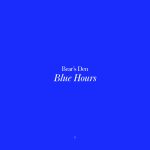
Atwood Magazine: I was going through the annals of Bear's Den's history recently, and it occurred to me that this year marks the band's 10-year anniversary, so... I wanted to start off, basically saying congratulations. 10 years is a big milestone as a band.
Andrew Davie: Oh, wow, thanks very much! We’re continually amazed that we’re able to still play any gigs or anything. It feels really lovely to be still around, still wanting to make music, and do all that stuff. It’s just really fun.
How does the Bear's Den of 10 years ago compare to the Bear's Den of today? How have you changed? How are you still the same?
Andrew Davie: That’s a good one. Well, personnel has changed a little bit, obviously starting out with Joey Haynes on banjo and guitar. Joey now lives in Oslo, and we played in Oslo on the first night of this tour and we saw Joey at the gig – he came and it was really nice, and we had a really good catch up with him afterwards. In terms of how we’ve changed, in many ways we’re still a bunch of dudes who are very, very surprised that we’re able to play to audiences and make records. But at the same time, it’s still the same thing really.
I think the main thing that we started out trying to do was just trying to write songs that felt really honest; that talked about difficult things, but also musically, just not being too tied down to one thing, and trying out different things. I still think we’re doing that. On this tour, I’m playing piano for the first time, which is crazy. Kevin obviously started out as a drummer, but now he’s playing guitar and bass and piano as well. So that multi-instrumental thing is still alive and well.
It's one thing to keep writing songs, right? You were a songwriter beforehand, and you will continue to write songs well after Bear's Den's tenure. It's a calling, it's something that you do to express yourself. What do you do to expand: To keep things fresh, musically?
Andrew Davie: It happens less often than it did when I was younger, because I think as you get older, it’s harder to be as impressed perhaps. Which is something that sucks – not being as blown away as you are when you’re 16 and you first hear something, at 30, when you hear something for the first time. But I still can get that. I still get really excited when I hear a new song and it’s just mind blowing: I don’t feel that you ever complete it. We’ve chatted as well about songwriting and in enough depth that we both know that it’s not something you complete. It’s something that’s constantly growing and evolving.
I think just trying to open yourself up to as many different influences as possible and inspirations as possible. Maybe those moments that you’re completely overwhelmed by pieces of music become slightly less often, but they’re still just as powerful when they do come along. I was listening to Phoebe Bridgers’ new song the other day, and I listened to it 10 times in a row, and I was just like, this is f***ing amazing. She’s just incredible. That still can happen to me, and for as long as that can still happen to you, that shows that you’re still emotionally invested and you’ve got skin in the songwriting game or the music game.
So, this brings us to Blue Hours your fourth LP. Do we count Fragments?
Andrew Davie: Yeah, that’s a tricky one, I guess it’s a reimagining, so I suppose it’s probably not our… Well, fifth or fourth.
Your first all originals LP in three years now, since so that you might hear me. Can you share a little about the story behind this album?
Andrew Davie: Yeah. It’s quite a strange way that we found our way to the title. Kev had stayed at a hotel called the Blue Hours Hotel in Morocco and he was like, you should stay at this hotel. And I did, and it was really cool. But really, I just fell in love with the name “Blue Hours.” When I was writing songs at night and jotting down ideas and stuff and starting to think about a new record, I started thinking of it almost like I was checking into a hotel called the Blue Hours Hotel to write songs. It was a name for a creative headspace, I guess. That’s where the album title came from. A bit of a fascination with the color blue came into play, and all that it stood for to me, which perhaps was sadness, melancholies, or nostalgia. A big theme on the record is mental health, and I think blue, to me, is a color that’s relevant somehow. Blue Hours felt like a name for my own depression.
We'll get back to what you just said, 'cause I think there's some real power behind that. But that's really fascinating, because I interpreted the album title a little more literally as being about navigating those hours when we're feeling blue.
Andrew Davie: That’s awesome, I don’t think it’s any definitive thing. I think also like talking to Kev, his vision for Blue Hours, to him, is really different to what it was for me. That’s the beauty of music, I guess.
The first time I saw you guys live was for the Red Earth & Pouring Rain Tour, and I remember thinking like that album's colors were red and blue. I mean, also the album title, or the album cover, you didn't hide back with the color gradient on there, but...
Andrew Davie: No, we didn’t! [chuckle]
… I would love to hear more about your vision going into this record, and to talk about the songwriting process here compared to your last album and the one before it.
Andrew Davie: Yeah. I think Red Earth was like… Making that one was kind of a blur of needing to make a record really quickly being on tour all the time and not having a minute to spare and being kind of obsessed with like weirdly getting on like a bit of a Bruce Springsteen… Like things… I was listening to nothing but Stevie Nicks and Bruce Springsteen on the bus, that’s all we were listening to. And it just was like, let’s just go there. Let’s just do this Red Earth & Pouring Rain thing. And then… Yeah, so that you might hear me was slightly more reflective and stuff, a bit more time spent writing it. And then this one, obviously without, you know, we decided after… We were a very lucky band in the sense that we finished touring literally just before the pandemic hit and we decided that we were gonna take a bit of a breather to make the next album. But yeah, we didn’t expect it to be as long as it’s been. I’d say this album was the hardest one to write, which I’m sure is not rare amongst writers and stuff, I think it’s been a strange time to write anything.
But yeah, I think the main thing for me really was just trying my best to actually write anything, to finish things, and that was a real battle, and quite an internal battle and quite a solitary battle, ’cause normally it’s sort of, I’d write songs and they’d be pretty close to being done and then we’d workshop them together. But because we weren’t able to workshop things together as much, I felt like I was finished… Getting further and further into finishing songs on a lyrical level. And yeah, that was a real battle I found.
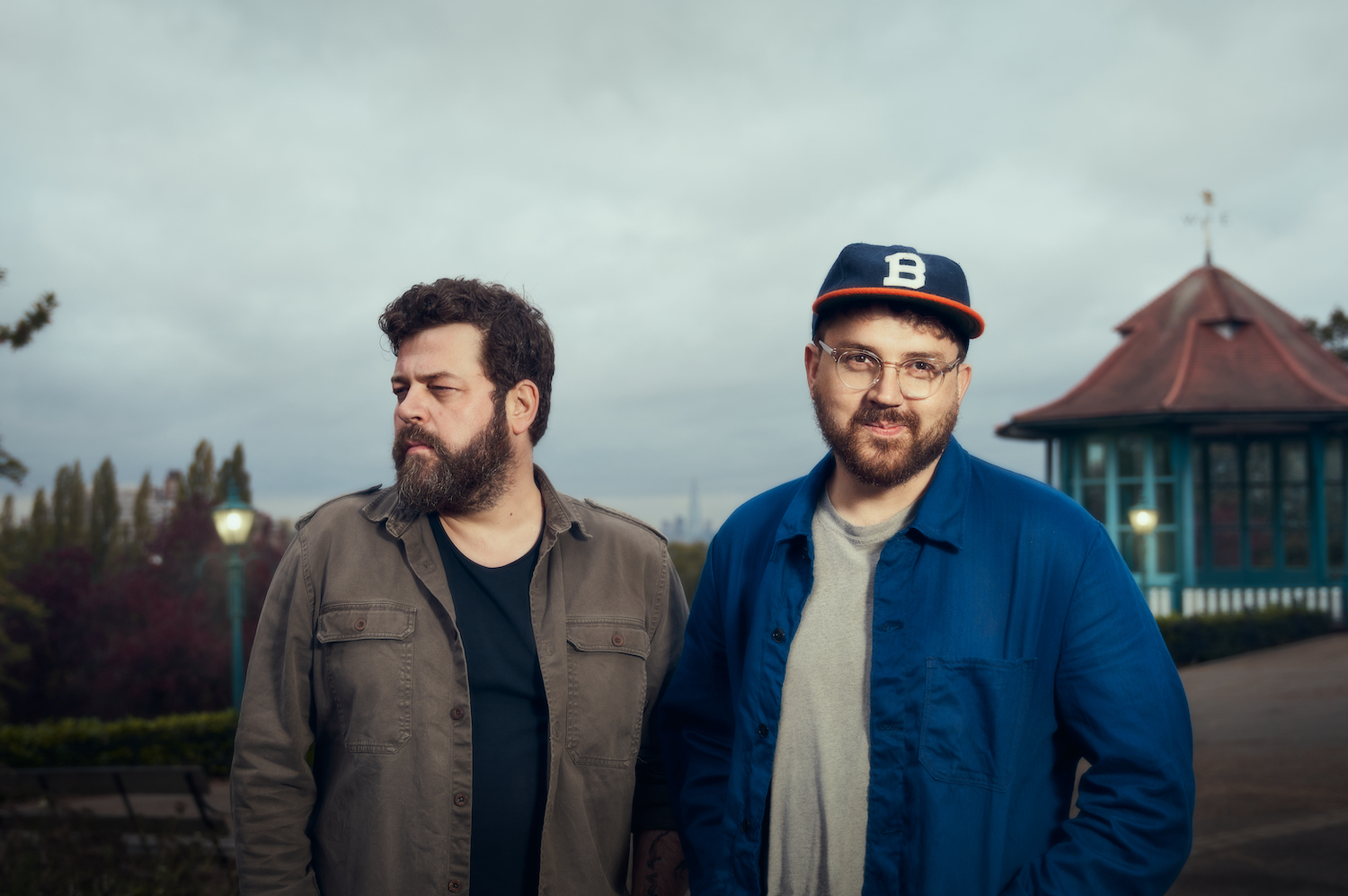
You're still working very closely with Kev on the songwriting process?
Andrew Davie: Yeah. It’s always been a sort of, I’ll get the ball rolling with some chords and some words and stuff, and then we’ll really get our heads together. But I think the pandemic kind of delayed that process a little bit. And we did a little bit of computer back and forth, but I think also just the nature of that distance meant that I felt more things, felt more distant, and I’ve probably felt more insecure about my work than I have in a really long time. And perhaps didn’t wanna share things as freely as perhaps I had done before and wanted to make sure they were better than before and things like that. But yeah, it basically… It was a real… I found it really difficult to finish and write anything. And so this album was a real journey and quite an inward looking one, I guess.
Do you remember when things started to unlock for you and where that key was turning?
Andrew Davie: I think there were a few moments that feel important. I’d had the piano idea for the “Shadows” for a really, really long time. I don’t know if you’ve ever had this, but when you have an idea and you like the music so much that you’re scared to touch it. I was scared of it. I was like, that’s a good song and I’m really worried that if I try and work on that, I’m gonna mess it up.
Like, ‘Are these the right lyrics or do I need to give it some’... It deserves something so good that I can't possibly put anything to it.
Andrew Davie: Yeah. feeling that precious about it. And I was like, basically not even like it’s, it’s not like a particularly amazing piece of music, which is more just like, I feel a lot of things when I listen to this and I know that by trying to write anything, I feel like I’m not gonna nail it. Which is a really easy head space to get into [chuckle] without anything creative. But then finishing that felt like a real moment and felt like a really difficult song to finish. There were so many moments like that really. And I think, when we did eventually come together, I think quite often for me, I feel like I just amass like a body of work that’s quite enormous and a bit unruly. And like we don’t really know what to do with it. And then we got our heads together and it kind of sort of cut through it, kind of almost hacked through all the mess. Eventually find the sort of 10 to 15 songs that feel, that they make sense. But yeah, I’d say “Shadows” and the song “Blue Hours” was one of the first ones we demoed and that was before the pandemic hit. But that demo sounded bananas compared to what it sounds like now, it was so different and yeah, Ian Grimble was also really helpful, you know, it’s almost like a filter processes, is like Kev really helps to figure out which songs feel the most sort of important. And then Ian is another layer of that.
You've worked with Ian before; does the relationship grow deeper the more albums you work on together with a producer?
Andrew Davie: Yeah, definitely. We’ve tried to describe it before. It’s like, he’s much better at remembering what we’re trying to do than we are. So we are like, you know, we’re like kids or pets that just wanna run off the lead and go crazy and just try loads of different stuff. And he’s kind of always pulling us back, going like, no, no, this is what we’re trying to do. He’s just really helpful. And when we work with him, we know we have more freedom to try things than perhaps we do in other scenarios where we have to be a bit more conscious of what we’re trying to achieve. But yeah, he’s great. He’s a really good dude.
That's awesome to hear. So, when you guys were talking about where you were going, so that you might hear me is a particularly powerful record, if I remember correctly from our talks then, a lot of heavy subject matter and a little bit of hope. One could describe this record in similar tones, similar hues, I guess. Where for you do these two records diverge?
Andrew Davie: so that you might hear me was massively – the title says a lot about it. It was a real, quite a desperate wanting to be heard, and understood, and seen. The songs were really searching for something. And I don’t think that that’s not true on this new album. But I think on this new record, I think I was starting to unlock, perhaps, where some of those feelings were coming from. And I think it was starting to resonate with me that it was a mental health thing that was I kind of… Like… Almost like so that you might hear me was dealing with some difficult circumstances and finding the situations, you’re in a kind of a series of complex situations. And Blue Hours is more like, “now let’s have a look at how your mind is interpreting those situations.” It fits sort of what’s not going well there, or how there’s perhaps some issues there in itself.
I guess it’s the same heart, sort of a difficult subject matter, but perhaps I’m looking at a more of a root cause thing of it. It’s hard for me to know fully the answer to that question though. I think also, I read a book by a writer called Ross Gay, called the… ‘A Catalog of Unabashed Gratitude’, which is a poetry collection. That really helped me when I was writing, and for the first time ever I feel like I looked at difficult stuff in my life through the lens of gratitude for things that have ever been good, rather than just purely as negative. Sort of like, “Oh this is a difficult situation. This is really shit.” I started to be a bit more like, “It sucks that I’m in this situation, but it only sucks because I’m so grateful that this person exists, or that I feel so thankful that I’ve had a relationship that I care enough about to be upset about it like this.” And that was a really big moment, and the song “Gratitude” is all about that. I was trying to make a record that had a sense of hope or love, beneath all of it, however difficult it is. There was a sense of a warmth to it, however bleak it gets – and it gets quite bleak!
For the first time ever I feel like I looked at difficult stuff in my life through the lens of gratitude for things that have ever been good, rather than just purely as negative.
You mentioned the song “Gratitude,” I'll go there real quickly, I believe this was the line, “You go look at the old waterfalls where we watch the water form the walls of Bear's Den.” Yeah, that line stuck out to me the very first time I heard it as just like, “Holy shit, he's unpacking a lot here.”
Andrew Davie: [chuckle] Yeah. Bear’s Den is a town North of Glasgow where my mom grew up and my grandparents ran a farm there. There’s a line in there about looking for a memory that stays kind of someone. And I guess for me, it’s a song about my absolute difficult relationship with my mom, who’s sort of struggled with alcohol abuse over the last few years, and also with recently she’s also been diagnosed with dementia, which is a sort of confusing…
I'm so sorry.
Andrew Davie: No, it’s okay, but it’s kind of a confusing dynamic in the sense that she doesn’t remember a lot of the last few years that have been quite difficult, and so there’s a song called “Selective Memories” that’s very much about that. But the song “Gratitude” was like trying to find a memory that stays kind of someone that you really care about. And there are these caves in Bear’s Den, which is sort of subconsciously where the band name, I think, must have come from, but there are these caves in this town called Bear’s Den, and there’s a waterfall thing that happens around there. And, yeah, it’s like this place that I went when I was really young, and my mom absolutely loved them, and I loved them then as well. And I went back and looked for them when I was an older man, and I couldn’t find them, and I thought there was something quite powerful about that – the idea of memory and all those sorts of things. I’m quite a strange person! [laughs]
We pull up at the old waterfalls
Where we watched the water form a wall
Outside the caves of Bearsden
Your eyes would light up whenever you spoke of them
I went out looking to try and find
A memory of you
That stays kind
I know a place – we could go
Little light please shine forever
I call you out so that I’ll always remember
Take me with you wherever it is you wanna go
In my weaker moments
I still find you there
Offering a way out, a way out of here
Outta sight, outta mind
We could be outside of time
If you’d just give me the sign
I won’t leave you behind
I can't believe I never knew that the name came from a heritage standpoint beforehand, I didn't know that.
Andrew Davie: Well, it sort of doesn’t, and weirdly, I wasn’t thinking about it. My grandparents had a barn in this town just next to Bear’s Den, called Milngavie, and I used to go there and write songs. ‘Cause it’s just they owned it, but they never went there, and it was just like this literally empty barn with like a desk in it, and like a small kitchen set up and a bathroom, I would just go there and write songs. And all my friends thought I was really weird, probably, and correctly thought I was weird. I would go there for a couple of weeks and just write songs set up by with a laptop and just do stuff. And, yeah, and then I wrote these songs, I came back and me and Kev went for a coffee or a milk shake… It was a milk shake, I think. We were like, “Let’s start a band.” but then, “What should the band be called?” I was like, “Bear’s Den.” And then a year later I went back and it was like, “Oh fuck, that’s probably why,” the town next door is called Bear’s Den.
That's awesome, that's so cool. ‘Cause me hearing this and not knowing Bear's Den is a place I'm like, “Holy shit, he's like just unloading on himself.” But I guess that's the magic of lyrics is that it can mean two things at once, right?
Andrew Davie: Absolutely. Yeah, totally. I remember some of the band hearing it, like the guys we play with live – I think that line is interesting to them as well, because they play in this band called Bear’s Den and it’s lyrically referencing that.
Very fun. It's the first time you've ever done that. I'm excited for people to hear that, and to see what the reaction is from other listeners and fans.
Andrew Davie: Yeah.
You talked about mental health struggles earlier, and I thought what you said was really interesting about how this album unpacks not only the things that are making you feel the way you feel, but also how you react to those experiences. It reminded me of our very first conversation about music as a form of therapy. That feels especially true for this record, which dives headfirst into those themes. This album obviously was born during a pandemic, a time when mental health struggles were and still are particularly salient. What impact do you feel the environment had on this record vs. what you were going through in your own personal life?
Andrew Davie: There’s a huge disclaimer or asterisk next to this, but we feel very fortunate because unlike a lot of bands, we had planned to take a bit of a break before this happened, so I think there wasn’t this creative pressure that we fell under from the start to keep making stuff all the time. I definitely have realized that this is a very inbuilt thing that we do have, which is that we both really have a strong need to create stuff. The environment forced a lot of introspection, and I think that brought a lot of worry and concern about the future of the band, the future of music, the future of live music… Even doing this tour now, I’m so thankful. The level of appreciation and gratitude for live music and what that is, is really profound. Not that I think we took it for granted –
Yeah, so that they might hear you.
Andrew Davie: Yeah, right! [laughs] Like man, it’s huge. Either of these two shows have been game-changing. It’s like remembering who you are or to some extent again, it’s been really nuts. But yeah, I think just creatively on how it informed the record, we weren’t able to communicate in person as much as normal. We actually both also became dads during the pandemic, which was the best thing ever and hugely exciting, and so cool.
But also this bizarre… Really, we went into this weird world as two dudes that were touring all the time, and then we’re coming back out and touring and it’s so different, we’re on the bus and there are people who are expecting kids and had kids and people who don’t drink anymore, and it’s this whole little… Lots has changed and yet nothing has changed, like everyone is still the same. But it’s a lot of growth, I guess. At the same time we’ve all been through this very traumatic thing. I think for both of us, we’ve been fortunate in a sense that we didn’t have huge plans and also becoming dads is the single best thing ever!
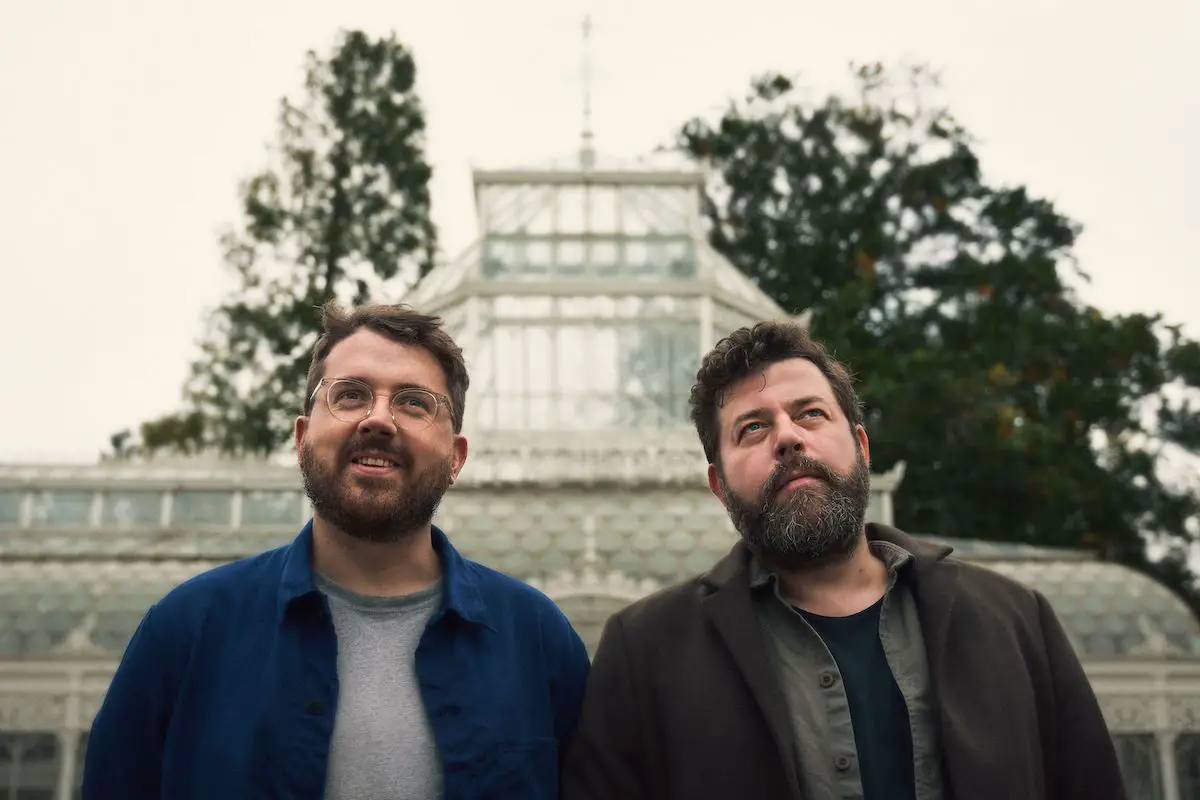
Taylor Swift made evermore and folklore but to me, Bear's Den, your music was already diving into those kind of things long before we were forced to look at them head on. So I kind of heard this album and I was like, “They were gonna make this album anyway.”
Andrew Davie: [laughter] I think so. I think weirdly it was, I guess, one of the ironies of the album is that at first, we started making it, the song “Blue Hours” was a name for this solitary head space that I’d go into when I’m working on stuff. And in the process of making it, I felt like the world was plunged into everyone’s individual, isolated environments. And I think in a weird way, everyone had to go on their own little journey through that, on the mental health side of stuff, there’s… Some of that gives me hope that we all have an understanding now of each other’s different journeys that we all are going on. That’s not really… There’s no real way that anyone can not have been affected by the last two years.
So hopefully that brings us together. I don’t know if that’s something that’s being seen massively on a global level at the moment, but I have hope that it will help people connect more about and be able to talk about these things more openly, because we all know that we’ve all had to go through something so difficult.
I like that a lot. I think of the song “Frightened Whispers” whose lyrics truly stuck out, and this is your latest single. So good to talk about it. “Confiding in the silence, an orchestra of tiny violins, playing on insane at the funeral in your brain, you'll live without, I'll live within, you're spoken for, I'm spoken down to, you were dreaming in my nightmares and I'm dreaming in yours.”
Andrew Davie: Yeah, strange. [chuckle] So that song came about from a really… I had a bunch of little electronic ideas that I’ve been messing around with, and I was actually trying to provoke creativity. Christof is a songwriter, who also plays with us live. He’s the mustachioed, sometimes sporting a mullet, banjo playing, acoustic guitar playing, guitar playing legend. He’s also an amazing singer-songwriter in his own right. Christof van der Ven is his full name. And when we were both sort of drawing up a bit creatively, he was like, “Let’s do this song a day thing.” You just have to finish a song in a day and send it over and you just do it every day for 28 days. And one of the songs I submitted was “Frightened Whispers” to that, just between me and him. It was really sort of quite a stream of conscious, so I think I didn’t really feel like I was over-thinking it.
And actually, weirdly, I’ve looked at the lyrics again, afterwards, and kind of gone, these are quite bizarre and a little bit out there, but I love them for that as well. The funeral in your brain thing is definitely… I’ve taken that from an Emily Dickinson poem. I love Emily Dickinson, she’s just the best. But like, she has a poem about, I felt a funeral in my brain, and I think it’s just the best poem ever. It’s quite like a stream of consciousness of very isolated persons sort of rambling, and maybe that’s who’s actually what I am. [laughs]
The end of that song is “Yeah, I still fall apart”; that feeling of falling apart to me is kind of engrained in this record. There's so many times where you talk about struggling, another song being, “Shadows” which we spoke about earlier: “You're harboring a private sadness, I still remember all your magic, even if you don't. The shadows always seemed to find you...”
Andrew Davie: Yeah, that’s the one.
Not only do you sing about your own personal experiences, but you also sing about the experience of being someone's partner. I've personally experienced what it's like to be on the other end of another's anxiety or depression, and it's hard to be there: To be there for somebody that you love in that capacity. What was that experience like for you?
Andrew Davie: I think I’ve had a fair few different experiences of that, also not always necessarily with a sort of romantic partner, but like, relatives, best friends, friends. I think the overwhelming feeling is still the same, you know? And I think that’s a feeling that as you get older, you have to sort of get used to it, and it’s an uncomfortable feeling, which is, you can’t solve your friend’s problems.
Sometimes you have to wait and just be there.
Andrew Davie: You just have to be there and not explain stuff away, not try and overly understand something that you can’t fully understand, and that’s so hard, ’cause you just wanna make things easier for someone. And you just really wish that people could see themselves the way that you see them. And I think that’s the hardest thing I’ve found about growing up. There are times when all you want to do is help someone, and you just can’t fully do that. There’s nothing you can say that will solve it, but you can just listen, be supportive and understanding, and empathize, but you can’t necessarily be the solution.
For me, songwriting and making art has been a way of me understanding my own mental health. It’s been a way of me understanding my problems and perhaps being able to put them into boxes and categorize things, and put almost like a ribbon around something that’s been difficult for me in the past: I can go like, “Right, that’s in that box now. I can kind of understand it.” Something about that, and when you perform live, there’s almost like a catharsis to that. So I think in my head, I always want to be that kind of person who can help someone in those situations, but sometimes you can help, but you can’t necessarily solve. I think it’s that thing.
It's really tough, but there's something to be said about recognizing that and then putting it into music too.
Andrew Davie: I remember struggling with it for a really long time. That was definitely something I felt many times before with people I really care about.
It means a lot that you were able to create that and find the right words for that. I remember the very first time I listened to this album, “Shadows” was the first song that I pressed pause for, and I re-wound it a little bit to hear it again. That really did me in. I’d like to go back to when you said that Blue Hours was like a descriptor or a title for your own depression. Can we unpack that?
Andrew Davie: I don’t know where it came from, really. I had it through a difficult period of time – I was struggling quite a lot with my mental health during the so that you might hear me tour. I think I was probably quite burnt out from touring and creating, and being on a bit of a treadmill of making and touring. The thing is, I love it, but I was a bit exhausted from it, and I needed a little bit of time at home. And that’s kind of what we were gonna have when we stopped, and one of the things I did during that time was I went on a holiday for the first time in a really long time, and I went to Morocco and Kev was like, “Well you should stay at this place, ’cause I did recently with my partner, and it was really lovely.” And it was called Blue Hours. Well, it was Blue Hours written in French, which I won’t even try and pronounce… Le Bleu.
But anyway it was a really nice hotel and I just liked something about Blue Hours… It’s the same thing with Red Earth & Pouring Rain. I read this really old Indian poem and I searched and read a translation of it, and I just saw that phrase right out the Pouring Rain and it was like, “I don’t understand why, but that just really, is totally messing with my head in really important ways that I need to unpack, I need to explore that phrase, what does it mean to me?” And then it’s the same with ‘Blue Hours’: I stumbled into those two words. For me, I need to unpack it and it becomes weirdly iconic to me, and I’m just like, “Right, I’m obsessed. What is this? What is this phrase?“
Afterwards I kinda got like, “Right, what the hell… What is all this stuff?” Blue Hours gives a name for a place I was going to, a private place I was going to where I would try and figure stuff out, and often not succeed, and sometimes write a song out of it or whatever, or create something that was interesting, but more often than not it was just a name for the safe place to explore things, I suppose.
We've talked about a couple of songs that mean like to you, do you have any personal favorites that we haven't spoken so far that are worth mentioning and highlighting?
Andrew Davie: I think… I mean “I know lame things that they are, all our kids,” but I really enjoyed writing “On Your Side.” I really enjoyed the process of making that. ’cause it was kind of weird. I watched the movies Paris, Texas and My own private Idaho like back-to-back. Having never seen either of them and I don’t even know how or why that happened, it was just like, I watched Paris, Texas first, and then maybe it was like I was reading about it and then going like, “Oh, similar to, My own private Idaho,” and I watched that movie.
And I don’t know if you’ve seen either of these films, but they’re just really peaceful, and they both kinda start with a dude standing in the middle of a desert trying to figure out their life, and figure out where it went wrong and what happened. And I think I could relate massively after 10 years of being in a band, and then the Pandemic hitting, it was like I felt a little bit like I was waking up in a desert and trying to work my way through, like, “What’s happened in the last 10 years? Who am I? What am I about? What am I trying to achieve?” These sort of big searching questions. And I think that song for me was like a journey through my love of both of those movies and my own journey, so maybe that was a song I really enjoyed working on. I’m kind of a fluke.
Thank you for sharing. It's really special to hear how these things come to life for you. What about lyrics-wise? Do you have any favorite lyrics lines that stand out to you?
Andrew Davie: Oh gosh, I mean, it’s funny you’ve mentioned the, “Frightened Whispers” one we’ve been performing that live, and that’s been really fun, like unpacking some of that stuff on stage that I haven’t really thought about. It’s all been quite like abstract and then actually performing it, you kind of go, “Whoa, what’s going on?” “Shadows” for me has been a really powerful song live. Yeah, whenever I sing that chorus, and I was like Kristof harmonizing it as well, and… It just gets really big and it’s like, “Holy shit.” From this tiny little thing in my bedroom or whatever, where it is now, it feels very different, so… Yeah, just lyrically, going, “Gosh… “
That's the, “I'd give it all back if I could just find a way to help you cope.” Right? I can’t imagine what it feels to internalize those lines.
Andrew Davie: To me that song feels like such an unloading of a lot of stuff I felt for so much of my life… That feeling of being, caring a lot about someone who’s suffering from depression is such a crap place to be and it’s so difficult, and you just got so much love and it just feels so useless at times.
I'm definitely writing the phrase, “I want you and all the shadows that walk beside you” in my next Valentine's card. I think it’s very romantic!
Andrew Davie: Yeah, I know, it is. I think that’s also something that’s quite rare for us, I think, as a band to be like that kind of… Just saying “I want you and everything that comes with you”, that’s a big confession… For this project, for this band and for me, I guess, as a writer, that’s not something I would find easy to say.
Along with this continued unveiling of mental health struggles, one of the big things that you guys have not been afraid of recognizing is the grandiose sound of this album. I'd argue that so that you might hear me is your quietest album, and with Blue Hours you went in the other direction, back to a bigger sound, Springsteen-esque in some ways. You're a rock band and you made some great pop songs on this record, too.
Andrew Davie: Oh, that’s nice to hear! Yeah, I think I would say that we talked a lot about records for us that weirdly I don’t think we were sort of going, “We wanna sound like this record.” But we definitely did go. We thought a lot about making a record that was bolder; we didn’t want to come out of two years of a pandemic and perform songs that felt like a downer. We wanted it to be a celebratory thing: something that felt passionate and something that would really feel cathartic to perform live. We weren’t afraid of it feeling poppier. If there was ever a question of should it be more tender at this moment or should we go for it, we always opted to go for the braver option. And that often was either of those things, but just always go for the more brave and the more dynamic thing.
I don’t think that was really a consideration on the last record so much. I think looking back on it, I was in a bigger hole than I realized when I was writing so that you might hear me, and I think songs like, “Crow” and “Breaker Keeper”, and things like that. I don’t think that was the most cohesive record we’ve ever made. I really loved some of the songs on it, but I think it was trying to be quite a lot of different records. Maybe I’m being too harsh on so that you might hear me. I feel a bit close to it, but perhaps there’s too many intimate things on it that sort of jar with me or something. We didn’t really talk about sounding like other records, but I remember us listening to records over the last 10 years – we listened to The Seldom Seen Kid album by Elbow, who I don’t know if they are that big in America, but they’re a big old band in the UK. And that record meant a lot of both of us. I remember I was also talking to Kev a lot about my relationship with the record High Violet by the National. It’s not my favorite album by them, but it’s a really important record where I felt like they just landed on something and went, this is who we are. It’s a really beautiful moment.
And I think for us, it was like, why don’t we try and have that kind of a moment with them where we just try and have confidence. And here we are, basically. It’s not really like, sonically, let’s do this, let’s have loads of cymbals; it’s more like, whatever decisions we make, let’s just not be shy about them.
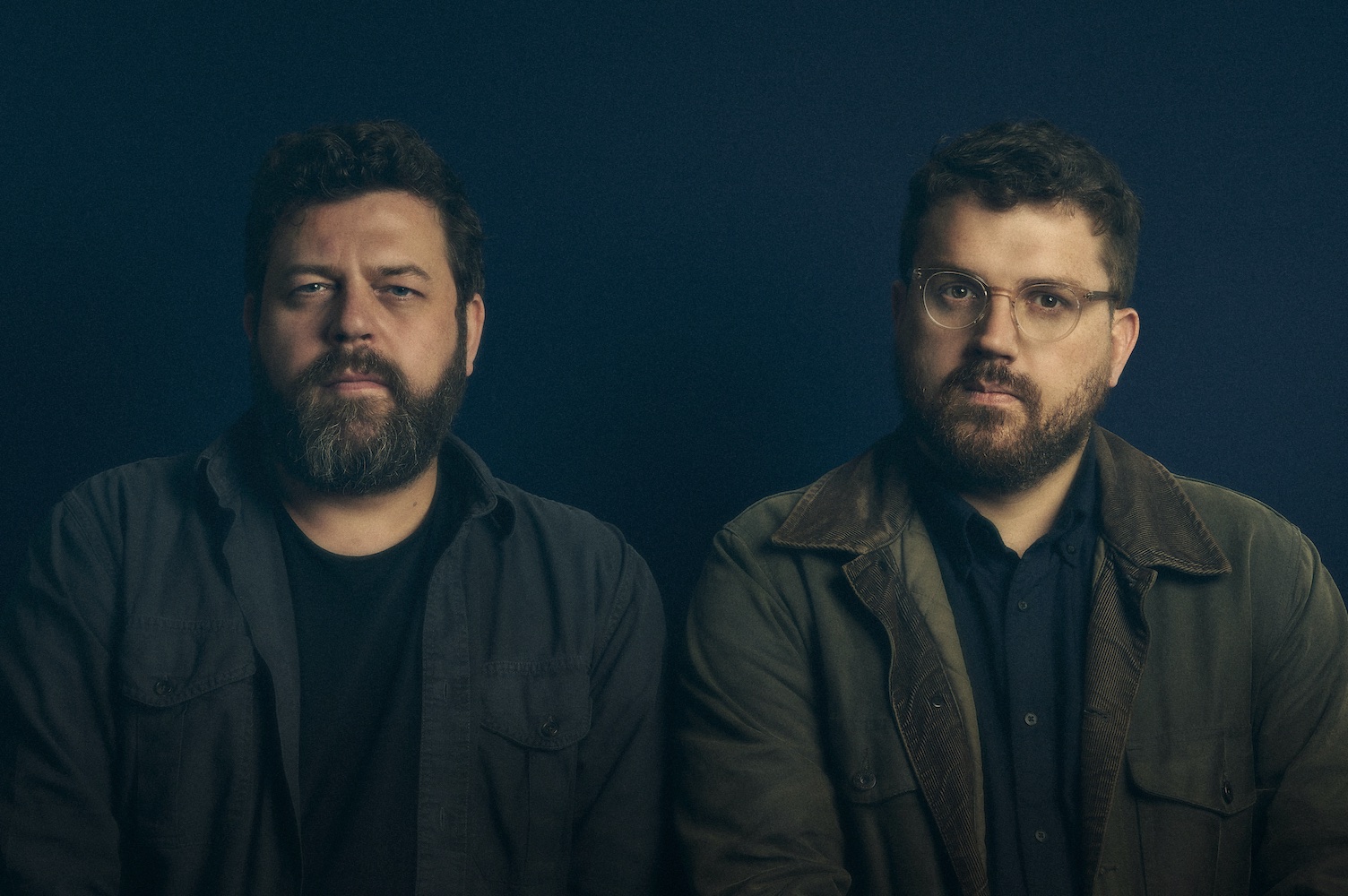
You leaned into the sounds. Was there any sort of contribution from Ian on that level in terms of helping you guys kind of stay that course in terms of just going for it?
Andrew Davie: Yeah, I think so. I think on almost every song. Ian knew that we were both getting more interested in electronic ideas. And so, Ian during the pandemic, built this wall of synthesizers in his studio, which he just calls the wall. And basically whenever there was a dull moment in the studio, Ian would just run something… He would just take some crappy thing I’d put on a demo and run it through this wall of synthesizers. And it would sound bananas. And he’s got a bunch of drum machines, arpeggio to synthesizers, you can control them and play along with it, but quite often, it was more just like throwing it in there and just messing with a few things and it would sound crazy, but really interesting. And the song “Gratitude”, the song “Blue Hours”, kind of all came about from just a really exciting… There’s one exciting pulse or arpeggio that just starts the song. And then, me and Kev would just be like, “Cool, let’s just bounce off that and see what happens.”
It's a different way of making music.
Andrew Davie: Yeah, it was kind of like, it just throws you as a musician. I wish it was, back in the early days, we would just be like playing G, C, and D was on an acoustic guitar. That was the dream. But I think the more you do it and the longer you’re in, you have… It’s sometimes what you find inspiring, it’s not quite a simple. Yeah, it turns out electronic noises are quite exciting to me these days. [chuckle]
It's more than a guitar's string. So, you end the album with “All the Wrong Places.” I thought this was a special song to finish with. It's one of the softer songs on the album, too. Can you tell me a little bit about that?
Andrew Davie: Yeah. So, that was a song actually kind of like “Frightened Whispers” I’ve been trying… I’ve been working on finishing it for years. I’ve started trying to write it a few years ago, just couldn’t quite get it right, but we’ve always really liked it… We’ve tried to record it once or twice before as well, and just haven’t quite figured it out, but I think mainly I’ve blocked it ’cause I haven’t been happy with the words.
But yeah, I think the whole idea of it was just this relationship where you’re with someone who kind of cries when they’re happy, and laughs when they’re sad, and it’s just sort of this idea in my head of finding someone in “All the Wrong Places” just felt relevant to me and important to me about someone I really care about. And yeah. I think something about it, maybe it kinda ties into the whole ‘Blue Hours’ thing, it’s just like… And there’s a song in “Gratitude”, I think, where I say, “In my weaker moments, I still find you there.” And it’s kind of trying really hard to move on or away from someone, but you still find them in all of these places where you don’t expect them to be.
And there’s something about that. And just anyone you care about, that’s how it works. You have no control over when they pop into your head and you have no control over when what will remind you of someone, whoever it is and whatever it is. And I think that’s almost kind of exploring that kind of a relationship. I’m really happy we’ve finally recorded also, Sally Herbert did an incredible string arrangement on that song. She was very cool to work with, and that was the best day for us in the studio, I think was, I mean, obviously for me getting to hear Kev play music every day is awesome. Let alone getting to hear Ian help bring that to life, let alone hearing the rest of the band come in and play. But Sally Herbert’s string arrangements were just like that day when like a quartet came in and just played everything. It was just amazing.
That's amazing to hear. Especially after everything that you went through with the pandemic and not being able to write songs together, play together, etc. Was it just like old times in the studio once you were together? Was there a renewed energy?
Andrew Davie: Yeah, I think we were just so stoked to be there. Like it was just, it was like, and to have purpose, like I think we’d both get a lot of like think a lot of our like purpose and drive creatively comes from Bear’s Den so I think it’s nice to have that again. Yeah.
I'm happy to hear that. We're coming to the conclusion of our call, as always, I am so grateful to speak with you and this is awesome. Thank you.
Andrew Davie: No, thanks… Thank you so much. Like every time I’m always like, “I know it’s gonna be like a really searching interview whenever we talk.” I’m always like, “Holy, I gotta like, you know, bring my A game.” [laughter]
I’m touched! What do you hope listeners take away from Blue Hours and what have you taken away from creating it and now putting it out next month?
Andrew Davie: It’s tough to know really. I mean, I think I’m so excited for people to listen to it. I feel like, it doesn’t belong in our little bubble. But I’m really excited for audiences to hear the songs live, which we’re getting to experience now. I think the main thing for me making it was that just to be really open about stuff, I found really difficult, not try and hide away from it, just try and do that. And it’s really hard to do that and I didn’t enjoy aspects of that, but I’m pretty sure that I like listening back to it, what I have done is uncomfortable at times, but I’m like good, uncomfortable, because I’ve said something that was difficult to say, and I hope that it can mean something to someone, same as I’ve always wanted with anything we’ve ever made.
It’s like, if this can mean like, if someone’s in our position and they hear “Selective Memories” and it means something to them, and it helps in even a tiny way, that’s awesome. If someone’s dealing with a friend who’s struggling with their depression and they hear “Shadows” and it means something to them incredible. But if that really like, just hopefully it’s just another person who struggles quite a lot and hopefully that makes someone else feel less isolated. And that’s kind of why I do it really, I guess.
Last night Beth asked how you’re getting on, I said you’re doing good
but some of you has left and some of you is still here
I said it first just as a joke, but beneath all of the mirrors and smoke
Sometimes I think your memory is selective
It just seems beyond convenient, which parts are disappearing when
The times you can’t remember I can’t forget
Maybe that’s a kindness though, a beauty in the growing old
That for some our own memories forgive us
Well it’s all that I could wish for you
It’s all that I could ever wish for you
That those memories just fade away
I love that. Segue to our cheesiest question: What are three words that you would use to describe Blue Hours, the album?
Andrew Davie: That’s not cheesy… Three words to describe it. Gosh, I’m wary of saying cheesy words to describe it. I think the main things like the main buzz words that I think about when we made the album were like, “being brave” was huge. Just being brave about difficult, the difficulty out there are some of the themes. And so… Oh, I’m overthinking it. I’m staring out into the vast, beautiful suburbs of Copenhagen and I’m struggling… Brave. This is why I write songs, ’cause I’m so terrible at actually saying anything that’s profound.
“Grateful, sad, and brave” are the three words that have stuck to me, that’s what that record is, that’s what I was going for, and that may be really cheesy, but they were the three main words that I think of when I think of the record.
For what it’s worth, I don't think you need to be profound as long as you're honest.
Andrew Davie: Ironically, I spent so long on that sort of journey with the album, but for me, that is a huge process of overthinking and unpacking to get to that place of like, I wish I was able to just park in that spot that’s there, like the first spot, rather than go around the entire town and then park in a bad place.
What a great metaphor for that. What are your hopes for Bear's Den next 10 years? And your own next 10 years as a musician and artist?
Andrew Davie: Oh gosh, I’m hopeful for Bear’s Den that… You know that this sort of situation is still a thing, you know that like having a chat in a hotel room in Copenhagen with someone across the pond, it’s like… You know it seems to just us… Yeah honestly, it’s so nice to do an interview and questions that are so thoughtful. I think for me, it’s just… Yeah if we’re able to continue making music and it means something to anyone it’s pretty profound. If Kev and I are able to creatively kinda stay like inspired by each other and keep continually pushing each other, I think that would be amazing. I think that it’s such an amazing thing for 10 years we’ve had that. I don’t take it for granted at all, it’s amazing. And I think as a musician and an artist, I hope that for both of us we are challenging each other and making the best music we can, inside and outside of Bear’s Den basically and bringing whatever we learn from all of our various other things in back into Bear’s Den, to make Bear’s Den a more inspiring place as well.
I guess Bear's Den is gonna become Dad Rock now.
Andrew Davie: I mean yeah, I think that’s very real. [chuckle]
It's always a pleasure, Andrew, thank you for your time today. Congratulations on your new record, congratulations on being on tour again, and I wish you all the best, your music family and your home family.
Andrew Davie: Yes, thanks so much for having me man. It’s always a pleasure.
:: stream/purchase Blue Hours here ::
— — — —

Connect to Bear’s Den on
Facebook, Twitter, Instagram
Discover new music on Atwood Magazine
? © Sequoia Ziff
:: Stream Bear’s Den ::

